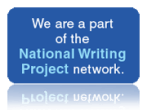Snapshot: 10/20/19
Let’s Examine Our Thoughts on Students in Poverty
In preparing for a section of a training session on the provision of culturally responsive education, a brief writing activity is planned to generate relevance for our adult learners, all of whom are in the education field, whether as central office/building administrators, general ed teachers, or special ed teachers. This section is focused on students living in poverty, an area not often considered in and of itself when examining school culture and climate.
It will be important to establish norms for the day’s training and to remind the group of them before each core activity and sharing of views as it may be uncomfortable for learners due to personal experiences, beliefs and values.
The following writing prompt will be presented to the group and I will indicate that they will be sharing their responses with others in the room:
“This is a fact: Students whose families are living in poverty do not perform on average as well in school as wealthier students. Perhaps it is unpopular to say, but if we’re committed to educational equity for low-income families, we must acknowledge this reality.” (Gorski, 2016)
In your response, consider these questions:
- Why do students whose families are experiencing poverty not do as well in schools as their wealthier peers?
- What factors do you believe are involved in this disparity in educational outcomes for students from low-income situations?
After the learners have completed their responses, have them:
- share with a table partner
- share with someone at another table that they do not know
- return to their seats
- Facilitator will seek volunteers to share their insights on the writing prompt.
- This will generate large group discussion before getting into the content of this section of the workshop.
A link to an article that will be used to drive this section of the training session: Re-examining Beliefs About Students in Poverty. It is by Paul Gorksi and was published in the May 2016 edition of School Administration. Dr. Gorski is the founder of EdChange, the Equity Literacy Institute and a college professor of Integrative Studies at George Mason University. Additional activities are to be used with the article such as Lifting of Text.



